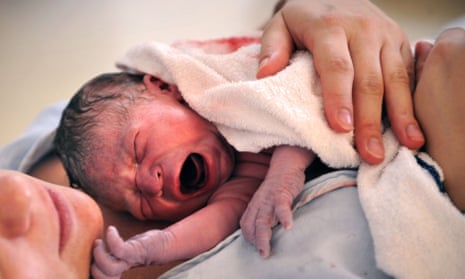The chancellor’s announcement in this year’s budget that the child element of tax credits and universal credit will no longer be awarded for third and subsequent children born after 6 April 2017 is already highly controversial. The effect will be to take up to £2,780 per child per year from working families in receipt of tax credits.
The chancellor attempted to root his approach in a notion of fairness, emphasising that it is “important to be fair to the many working families who do not see their budgets rise by anything like that [sum] when they have more children”. But that is to compare apples to oranges and to overlook need. The implication is that if families on tax credits choose to have a third child, they should be treated, at the same time, as consciously choosing to be poorer.
The cost of welfare is thus to be reduced by policing bedrooms up and down the country. There are many reasons why the chancellor’s analysis is unacceptable and unfair but, even on his own analysis, it presents a problem. What to do about children born of rape?
Hidden away in paragraph 2.103 of the “red book” (the budget) is the following sentence: “The Department for Work and Pensions and HMRC will develop protections for women who have a third child as a result of rape, or other exceptional circumstances.”
In other words, a rape test will be introduced into our welfare law. The implication being that those mothers who can provide evidence of rape will not have their tax credits removed, presumably because they did not choose to have a third child.
This proposal is chilling. It is well recognised that the vast majority of women subjected to rape are unlikely ever to come forward and report to the authorities what has happened to them. Under-reporting of rape has been running at 80%-90% for years. Does the chancellor seriously think that women, who find the prospect of reporting a rape to the police so horrendous that they would rather remain silent, will come forward and disclose it to the DWP? That proposition only needs to be stated to be seen to be absurd; and the government’s distorted thinking does not end there.
Are women really expected to identify their third-born as conceived during rape to avoid losing their tax credits: something most, if not all, would find wholly anathema?
Make no mistake, this is a first in our welfare system. According to House of Commons library research, carried out on my behalf, “there are no similar provisions in other welfare legislation which require people to proactively identify themselves and demonstrate that they have been raped”.
At the committee stage of the welfare reform and work bill, this provision needs to be closely scrutinised and challenged.
But the problem for the chancellor is that, having based his welfare reduction approach on the supposed choice of parents to have a third child, he cannot escape the consequences. He has to make some provision for rape; but how to do so without introducing a rape test?
Dig a little deeper and the extent of the unfairness of the chancellor’s approach becomes even clearer. What about mothers who have a third child because of ongoing abuse within the relationship? Power lies at the heart of most domestic abuse, and that includes power over sex, when to have children and how many.
In 2013, the government proudly trumpeted the introduction of a new definition of domestic violence and abuse as: “any incident or pattern of incidents of controlling, coercive, threatening behaviour, violence or abuse between those aged 16 or over who are or have been intimate partners or family members regardless of gender or sexuality. This can encompass, but is not limited to … psychological, physical, sexual, financial or emotional.”
Yet women who have a third child because they fear the consequences of not complying with their partner’s threats and demands are to be deprived of tax credits because of their “choice”. How does that sit with the government’s commitment to tackle domestic violence?
The bedroom choice theory underpinning the chancellor’s budget needs to be held up to the light, closely examined and then binned.
In the real world, choice over whether to have a third child is a slippery concept and the penalty for decisions made in the bedroom, for a whole variety of reasons, should not be poverty.











